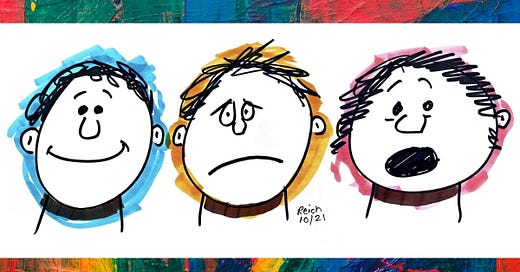I often tell my students that if they strive to achieve full and meaningful lives they should expect failures and disappointments. We learn to walk by falling down again and again. We learn to ride a bicycle by crashing into things. We learn to make good friends by being disappointed in friendship. Failure and disappointment are necessary prerequisites to growth.
The real test of character comes after failures and disappointments. It is resilience — how easily you take failures, what you learn from them, how you bounce back.
This is a hard lesson to learn for high-achievers who are used to jumping over every hoop put in front of them. It’s also a hard lesson for people who haven’t had all the support and love they might have needed when growing up. In fact, it’s a hard lesson for almost everyone in a culture such as ours that worships success and is embarrassed by failure, and is inherently impatient.
Why am I telling you this now? Because we have gone through a few very difficult years — Donald Trump’s racist nationalism and his attacks on our democracy, a painful reckoning with systemic racism, angry political divisions, a deadly pandemic accompanied by a recession, and climate hazards such as floods and wildfires. We assumed everything would be fine again once these were behind us.
But we now find ourselves in a disorienting limbo. There is no clearly-demarcated “behind us.” The pandemic still lurks. The economy is still worrisome. Americans continue to be deeply angry with each other. Trump and other insurrectionists have not yet been brought to justice. Democracy is still threatened.
And Biden and the Democrats have been unable to achieve the scale of changes many of us wanted and expected.
If you’re not at least a bit disappointed, you’re not human. To some of you, it feels like America is failing.
But bear with me. I’ve learned a few things in my half-century in and around politics, and my many years teaching young people. One is that things often look worse than they really are. The media (including social media) sells subscriptions and advertising with stories that generate anger and disappointment. The same goes for the views of pundits and commentators: Pessimists always appear wiser than optimists.
Another thing I’ve learned is that expectations for a new president and administration are always much higher than they can possibly deliver. Our political system was designed to make it difficult to get much done, at least in the short run. So the elation that comes with the election of someone we admire almost inevitably gives way to disappointment.
A third thing: In addition to normal political constraints, positive social change comes painfully slowly. It can take years, decades, sometimes a century or longer for a society to become more inclusive, more just, more democratic, more aware of its shortcomings and more determined to remedy them. And such positive changes are often punctuated by lurches backward. I believe in progress because I’ve seen so much of it in my lifetime, but I’m also aware of the regressive forces that constantly threaten it. The lesson here is tenacity — playing the long game.
Which brings me back to resilience. We have been through a difficult time. We wanted and expected it to be over — challenges overcome, perpetrators brought to justice, pandemic ended, nation healed, politics transformed. But none of it is over. The larger goals we are fighting for continue to elude us.
Yet we must continue the fight. If we allow ourselves to fall into fatalism, or wallow in disappointment, or become resigned to what is rather than what should be, we will lose the long game. The greatest enemy of positive social change is cynicism about what can be changed.














Share this post